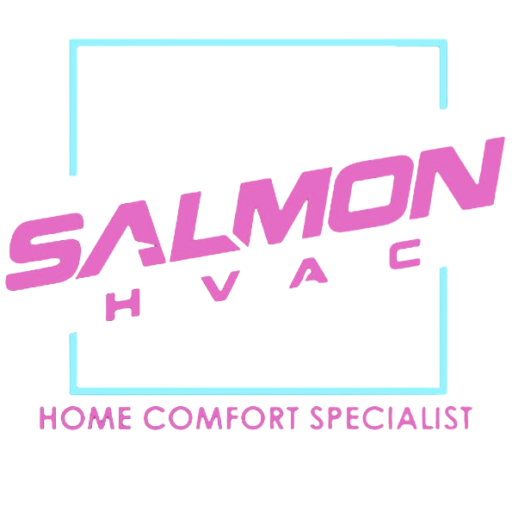Your HVAC system is one of the most important investments in your home. It regulates your indoor climate, ensures air quality, and helps maintain a comfortable living space no matter the season. With the right care, equipment, and professional services, your heating and cooling system can run efficiently for many years. This guide explores how to choose, maintain, and optimize your HVAC system so you can enjoy dependable comfort year-round.
Understanding Your Home’s Heating and Cooling Needs
Every home is unique, and your heating and cooling requirements depend on factors such as square footage, insulation, layout, and the number of occupants. Older homes with outdated insulation often struggle to retain heat in the winter and keep cool in the summer, forcing the system to work harder. Similarly, large windows that receive direct sunlight can lead to higher cooling demands.
By assessing these elements early, you can determine whether your current system is adequate or if an upgrade would improve comfort and efficiency. Investing in proper insulation, energy-efficient windows, and the right-sized HVAC system can prevent energy waste and keep utility costs under control.
Seasonal Demands and HVAC Performance
Your heating system works hardest during the coldest months, while your air conditioner takes the lead during the hottest days. Preparing for these seasonal shifts is essential. For example, servicing your air conditioner before summer ensures it can handle peak demand, while scheduling a furnace inspection in the fall helps prevent mid-winter breakdowns.
Smart thermostats can help balance seasonal needs by automatically adjusting temperatures based on your daily schedule. This not only improves comfort but also reduces unnecessary energy use, leading to lower monthly bills.
How to Choose the Right HVAC System
When selecting a new HVAC system, efficiency ratings matter. Cooling systems are rated using the Seasonal Energy Efficiency Ratio (SEER), while heating systems use the Heating Seasonal Performance Factor (HSPF). The higher the rating, the more efficient the system. An energy-efficient model may have a higher upfront cost, but it can significantly reduce your long-term energy expenses.
Look for the Energy Star label to ensure your system meets strict efficiency standards. Features such as variable-speed fans, zoning options, and advanced filtration can also enhance comfort and improve indoor air quality.
Balancing Comfort and Budget
The most expensive system isn’t always the best choice for your home. A unit that is too large may cycle on and off frequently, wasting energy, while a smaller unit may struggle to meet demand. Working with a professional HVAC technician can help you find the right size and features for your budget.
Consider long-term operating costs in addition to the initial price. Investing in a high-efficiency model might save you more over its lifespan than a lower-cost, less efficient unit.
Essential HVAC Maintenance Tips
Routine maintenance is the key to extending the life of your HVAC system. At least twice a year, preferably in spring and fall, schedule professional inspections. Technicians can clean coils, check refrigerant levels, inspect electrical connections, and test system performance.
In addition, homeowners can take these simple steps to improve efficiency:
- Change air filters regularly, ideally every 1–3 months.
- Keep outdoor units clear of leaves, dirt, and debris.
- Inspect vents and registers to ensure proper airflow.
Avoid skipping maintenance, as small issues can quickly turn into costly repairs. A well-maintained system not only lasts longer but also provides more consistent comfort.
The Role of Smart HVAC Technology
Smart thermostats, zoning systems, and advanced controls have revolutionized how homeowners manage indoor comfort. With remote access via mobile apps, you can adjust your settings from anywhere. Some systems even learn your habits over time, automatically optimizing temperature and energy use.
Smart vents can help regulate airflow by directing heating or cooling only to rooms in use. This targeted approach reduces energy waste and ensures every part of your home stays comfortable.
Latest HVAC Innovations
Modern systems often include variable-speed compressors that adjust output to match your home’s needs. This results in quieter operation, more precise temperature control, and improved energy efficiency. Advanced air purification systems can also help remove dust, allergens, and airborne pathogens, improving your home’s overall air quality.
Troubleshooting Common HVAC Problems
Your HVAC system may give early warning signs before a breakdown. Watch for unusual noises, reduced airflow, uneven temperatures, or unexpected increases in energy bills. Simple issues like a clogged filter can be resolved easily, but more complex problems, such as refrigerant leaks or electrical failures, require professional attention.
If your system is over 15 years old and requires frequent repairs, replacing it with a modern, energy-efficient unit may be the more cost-effective choice.
FAQ: HVAC Services and Tips
Q:What types of HVAC services are available?
A: Professional HVAC companies offer installation, maintenance, and repair for systems such as furnaces, central air conditioners, heat pumps, and ductless mini-splits. Many also provide indoor air quality services, including filtration, humidification, and ventilation improvements.
Q: How can I improve my HVAC system’s efficiency?
A: Replace filters regularly, schedule seasonal maintenance, and seal duct leaks. Installing a programmable thermostat or upgrading to a high-efficiency system can also help lower energy usage.
Q: How often should my HVAC system be serviced?
A: At least once a year, though twice is ideal once before the cooling season and once before the heating season. Regular service keeps your system running at peak performance.
Q: What are signs that my HVAC system needs repair?
A: Watch for strange noises, weak airflow, uneven temperatures, or a sudden spike in utility bills. If the system fails to heat or cool effectively, call a professional.
Q: Are financing options available for new HVAC systems?
A: Many HVAC providers offer financing plans, allowing you to spread the cost of installation over time. This can make upgrading to a high-efficiency system more affordable.

